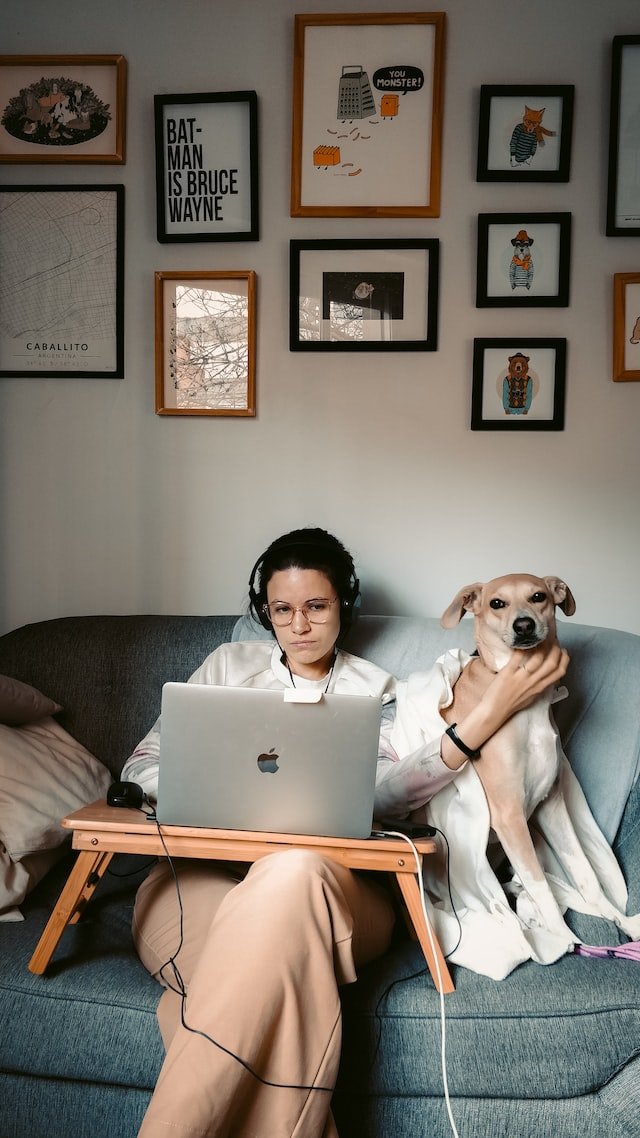Why minor bladder leakage affects young women
If you have minor bladder control issues, haven't had kids and you're the young side of menopause, you're DEFINITELY not alone. So let's end the awkwardness and chat about this super common women's issue that affects women of all ages.
Rushing to make it to the toilet or mini wet patches every so often affect so many women in their 20's, 30's and 40's who haven't had children...but why?
Embarrassment stops too many women from getting help
Last year while practicing physiotherapy in Melbourne, Australia, I saw at least ten young women in their 20's and 30's who experienced sporadic continence issues, and their embarrassment was palpable. These ten women were only a few of the thousands of young women with bladder issues, and sadly, 70% of people with bladder control issues don't seek help.
If you, your sister, your Mum or your bestie has ever experienced bladder control issues, please read this.
There is a solution, you just have to know where to start.
What is minor bladder leakage?
The most common bladder incontinence issues fall into two categories:
Stress incontinence
Urge incontinence
What is stress incontinence?
Stress incontinence means your bladder involuntarily leaks due to physical stress such as coughing, sneezing running and jumping during periods of increased intra-abdominal pressure.
For example; during a cough, the pressure in your trunk area increases, pushing down on your bladder.
If there isn't enough upward support from your pelvic floor, your small amount of urine may leak.
Stress incontinence usually occurs after childbirth or after menopause. But not necessarily, it can come on at any time.
What is urge incontinence?
This bladder control issue is the most common I've seen. If you ever have to run to the bathroom with no prior warning, or you don't quite make it and you get small wet patches on your undies or you ever feel 'desperate to go,' - you have urge incontinence.
The cause of urge incontinence isn't known, but it's an issue relating to the bladder's messages from the brain.
Usually, the bladder can store 350-500mls of urine at a time
When the bladder is full, it sends a message to the brain, which then sends a message back to the bladder to contract and empty
Usually, you can delay going to the bathroom until it's convenient
Urge incontinence often means the bladder tells the brain it needs to empty even when it's not full. It gives the brain 'mixed messages.'
Why does urge incontinence happen?
No reason is currently known. The treatment (when you go to see a pelvic physio) often involves changing associations between emptying your bladder and what you’re doing. Eg. Instead of going straight to the bathroom when you get in the house, you’ll try to do something else first. Then your brain can learn to disassociate that activity with emptying your bladder.
Why does bladder leakage affect young women with no children?
There are a number of reasons, but here I’ll talk about pelvic floor.
It's all about your pelvic floor. Yep, it's a muscle thing.
The pelvic floor is a sling of muscles that spans from your pubic bone, right between your legs and up to your sacrum. Think of it like a hammock of muscles, with different muscles slinging around your three openings.
When activated or 'used' correctly, your pelvic floor should lift, rather than scrunch.
Imagine a tissue lying flat on a table and you pinching the centre into a tent and lifting it upwards.
On ultra sound, it looks like this:
With many young women experiencing bladder control issues, their pelvic floor barely lifts at all, and when it does, they're unable to hold it.
This can also occur if you're unable to fully relax your pelvic floor, which is another common problem; meaning your pelvic floor is inefficient.
Your abdominal contents and your bladder when it empties create a downward force. If the upward life of the pelvic floor is too weak, a little bit of urine can leak out.
What can you do about your bladder control issues?
Firstly, remember you're not alone lady! This issue is so much more common than anyone realises.
Secondly, seek skilled help from a trained, experienced women's health physiotherapist. They need to have specialised in women's health physiotherapy and should have proven experience in the field. A great example are the genius physios at Fitwise, Melbourne.
Unlike myself who specialises in sports and spinal physiotherapy, these skilled physios will be very specific to your bladder issues.
They will ask you to fill out a long questionnaire, then go through your full history.
Then, to understand the strength and endurance of your pelvic floor, they will ask if you consent to an internal exam. It's completely painless and a great way to establish where you're at with your pelvic floor strength.
They will likely also use a real time ultra sound to watch your pelvic floor activation.
Ultimately, they will give you a program to help reduce the degree of urgency and increase the storage ability of your bladder. These programs work, and can make a huge difference to you.
NOTE: Bladder incontinence can also be caused by infection or neurological disorder. A good women's health physiotherapist will encourage you to get tested for these issues if they think you fall into any of these categories.
If you have any questions about bladder control issues - let me know!












